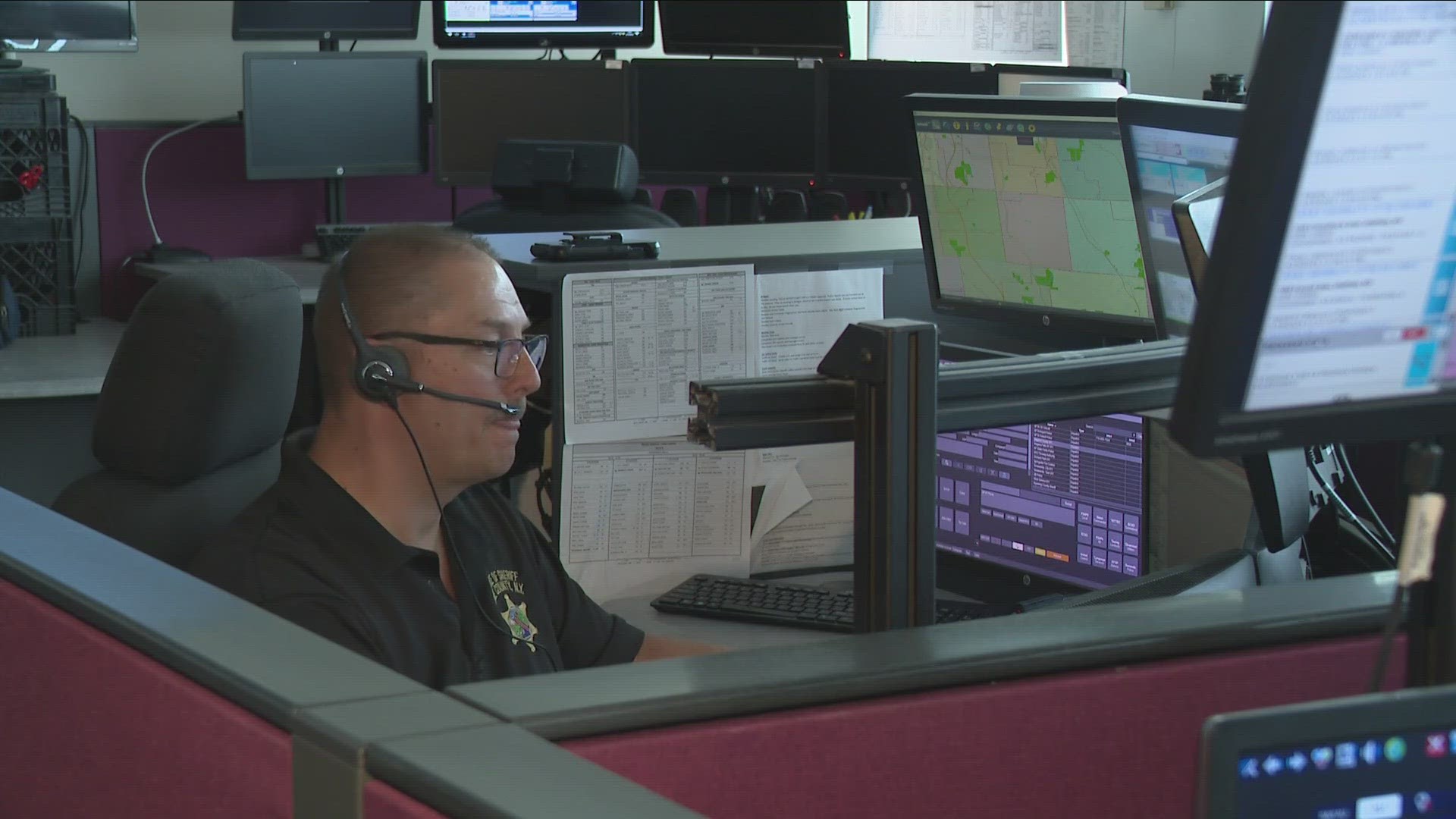BUFFALO, N.Y. — This is National Public Safety Telecommunicators Week, a week to celebrate the 100,000 people who help keep us safe in 911 dispatch centers across the country.
Joseph Sajdak started his career with the Erie County Sheriff's Office 25 years ago, and in that time he's seen a lot of things change, and he's helped a lot of people.
"We work 12-hour shifts," Sajdak said.
And throughout those shifts, Sajdak helped answer many of Erie County's 102,000 911 calls last year.
"The day usually starts off slower and it gets crazier throughout the day," Sajdak said.
Sajdak knew he wanted a career in law enforcement at an early age and decided he wanted to be a dispatcher after getting two degrees in law enforcement and taking the civil service test.
He works the day shift.
"Courts, medical runs, sending cars for service, school, SRO-related duties, and then in the afternoon is when everybody comes home to find problems. So those are more community-driven complaints where they come home, find their house broken into, something comes in the mail threatening information, calls on their phone," Sajdak said.
He says when he started maybe about a quarter of the calls were from cell phones, and now only about 10 percent are from landlines.
"The technology is evolving every day. We've gone from 911 calls to now taking text messages, and soon we'll be able to take video text messages and video calls," Sajdak said.
A lot of the calls are serious, but he's has his share of, let's just say, interesting calls, too.
"Naked people running down the street. We've had problems with people mowing each other's lawns. Those are the lighter aspects of weird calls, but some things are really strange and people do some really crazy things," Sajdak said.
And his best career advice is that you have to be understanding both to the callers and the first responders.
Sajdak says the training process takes anywhere from 12 to 16 weeks and some people pick it up pretty quickly.
RELATED VIDEO:

